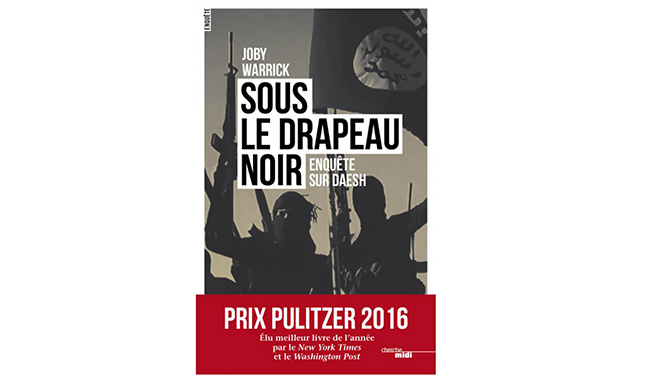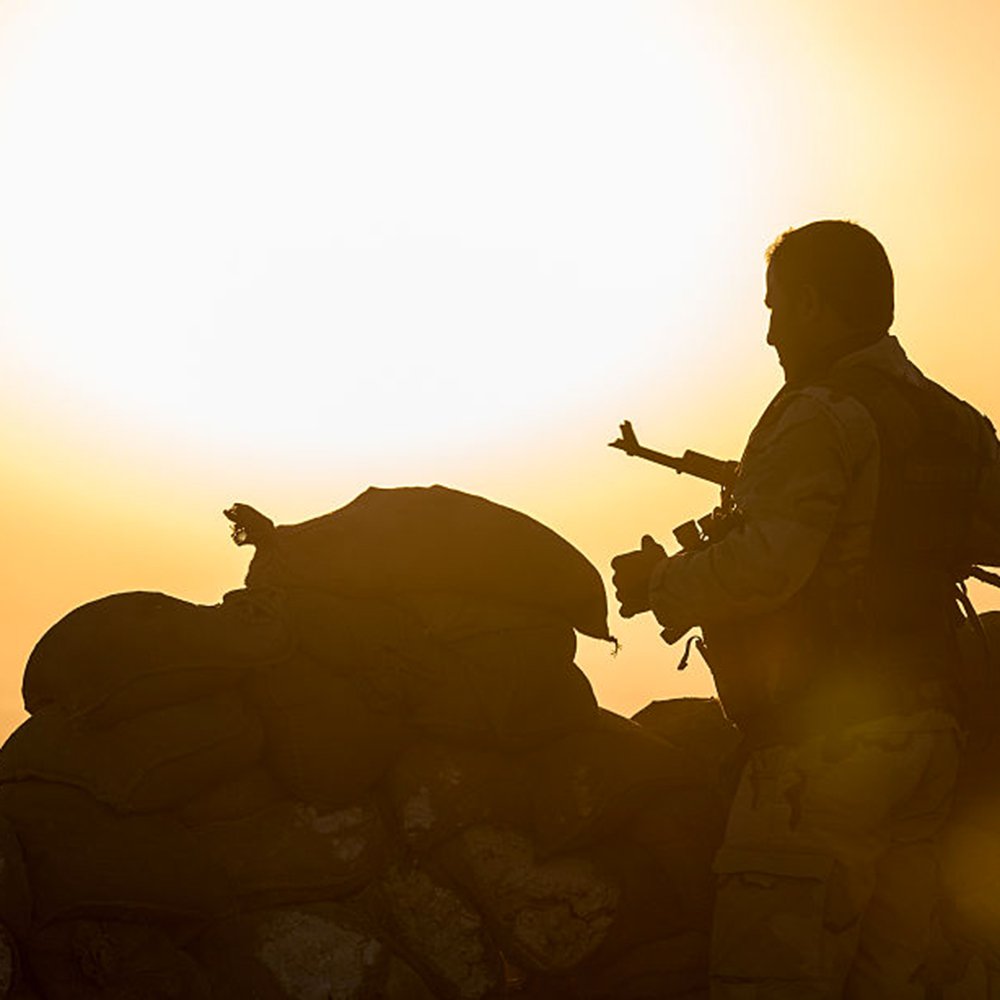Désirée de Lamarzelle: Why is Abu Moussab Al-Zarqawi the main character in your book about terrorism?
Joby Warrick: Because Zarkaoui is a very important figure in the history of jihad. First of all because he is very different from the leaders who preceded him: he was not religious and of a modest social background. He was a very uneducated person, in academic failure, whose very strong and violent personality led him to write a new page in the history of jihadism. He disregarded the usual rules of Islamic terrorists who spared women and children for example, and committed acts of violence in public. He shocked and considered it useful.
You describe it as cerebral but is it intelligent?
Yes he has this primary intelligence, he is cunning. He showed a very special ingenuity that enabled him to shape the organization of terrorism in his own image. And today's Daesh is very similar to him.
An example ?
Putting decapitations online is all made the signature of his own violence that he combines with the will to mark the spirits. They are men who love death.
A mode of operation that differs from Al Qaeda?
Yes, if the ideology of Al Quaida is extreme, it is also traditional and more strategic in violence. Zarkaoui has put all the religious aspect of jihadism aside and created something more brutal and more extreme.
In this, I think he has transformed the character of the Islamist organization into something more personal.
Does religion have nothing to do with Daesh?
If you listen to the people who join Daesh, they invoke religious reasons, but it has nothing to do with it. Their motivation is more akin to the desire to restore the dignity of the Muslims, that of the caliphate and to defend themselves against the infidels.
You explain that this obsession goes back to the history of the creation of Jordan?
Exactly. Starting from the idea that the colonial power divided the Middle East by creating several countries that had never existed before as Israel, but also Jordan, Zarkaoui wanted to erase the last 100 years of history. This is the argument he uses mostly to gather even more supporters.
In your book, you speak little about religion, whereas in France it is a real subject, especially with that of secularism.
In fact there are certain ways of reading the Koran, with internal conflicts of interpretation of Islam. The classic view is to reject these extreme interpretations, but people like Zarkaoui only focus on violent passages - out of their historical context - to justify their actions. It is a perversion of the interpretation of Islam.
You talk about this prison right in the middle of the desert of Jordan intended to isolate all the fighters and which fails in its attempt to weaken them ...
Yes, that's the problem. It is also now in the United States and Europe to prevent the most extreme prisoners of war from "recruiting" into prison. It's like a virus spreading. The Jordanians knew they had a problem with these radicalized, and isolated them all together as far as possible. Instead, it made them stronger.
With Zarkaoui as leader, they developed quasi-military rules of life and gained power. When they came out they were formidable. So for now there is no good solution. The best thing is to do it case by case.
You think it was possible with Zarkaoui?
You know, some people are lost causes. They are so extreme in their way of thinking that you can not help them. Some can not be saved. These are permanent threats to all "impressionable" young people who are looking for a leader.
What are they looking for?
Someone who can watch over them, which will allow them to better understand the religion. And it is a complicated task for the government to compete with these radicals.
So you have no solution for someone like Zarkawi?
A very hard solution.
Eliminate them?
When you observe Daesh, you realize that these leaders never compromise, and that it is impossible to reform these extremist radicals because they are determined to fight to the end.
They do not seek peace, they do not seek peace.
You think Zarkawi wanted power or just wanted to kill? You also talk about the complexity of the character.
He had a heroic vision of himself. And with his very violent personality he could be good: with his mother, his sisters, with his followers. Even people like Zarkaoui brutal and harsh, have a remnant of humanity. He was a good leader, and he thought that he had his own destiny, chosen by God, and he saw the forces of history pushing him in that direction.
Are there any Zarkawi among the children currently living under the bombs in Syria?
Some people have predispositions to become so. Zarkawi was a natural leader, capable of transforming a very small group of men into a movement without training or training. 50 years we will talk about it again.
Bradley Cooper is making a TV series adapted from your book!
We met at home. He gave me a magnificent speech about the film he wanted to do. A few weeks later, HBO agreed to develop the series. We are at the level of the script and it will be necessary to make the pilot before having the definitive green light but we have a lot of hope. I really hope it will work.

We are approaching November 13, how did the Americans react to the terrorist attacks?
the Americans lived it personally. They only talked about it for weeks. The attack of Nice has even more affected us by the violence of the truck which has darkened on the families. It is as violent as the decapitations of Daesh. We felt really close to the French, as you were after September 11 in the United States. We're all in the same boat.
How do you see the end of Daesh?
This will be done in stages, first with the besieged cities like Mosul and Raqqa, which will fall. And there will be no more caliphate. Unfortunately, there will be terrorist attacks to show us that they still have power. We will have to fight by staying alert. It will be years of effort. I think that in fifty years we will still talk about Daesh but that it will be much less powerful.
Under the Black Flag Daesh's Inquiry - Joby Warrick at Editions du Cherche Midi


